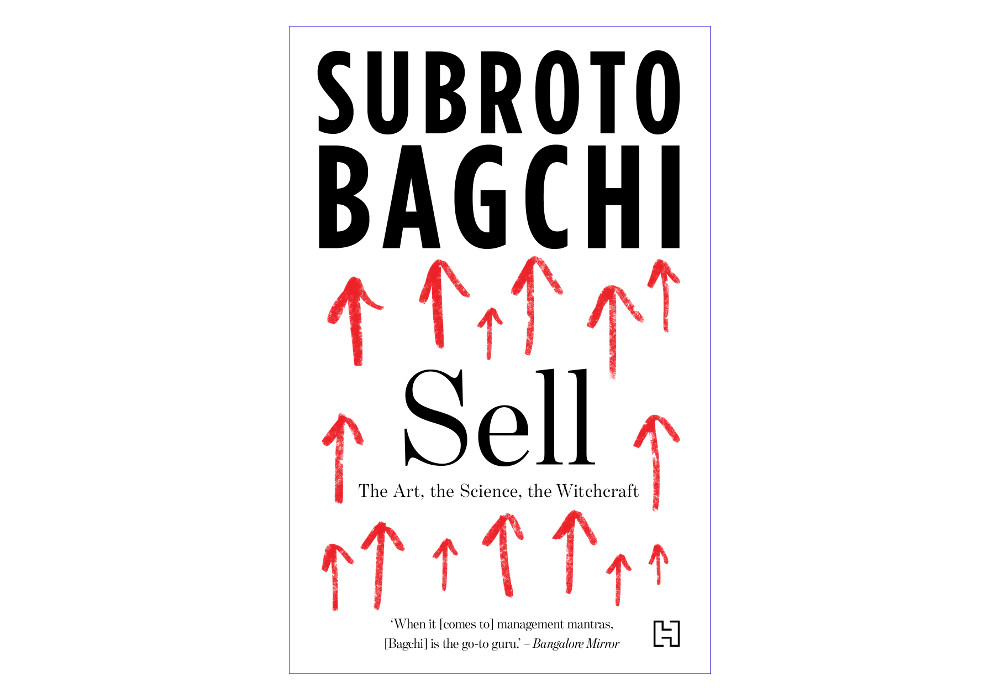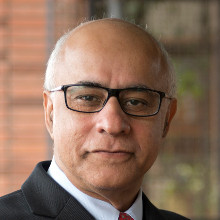The snow was unrelenting throughout the drive from Dulles International Airport, Washington DC, to the Marriott Hotel in North Bethesda, Maryland, located in the suburbs of the city. It was past 10 p.m. when I reached the hotel and checked in.
Other than the receptionist, and the barman busy on the far side of the lobby, I spotted no one else. I was tired and hungry which is why, rather than trudge to my room to settle in first, I decided to head to the restaurant adjoining the lobby bar, only to see the chairs overturned on the table and a janitor busy mopping the floor. She looked up from her mop and said in a kind voice, ‘We open at six for breakfast. You can get something to eat at the bar.’ I wasn’t in the mood for bar food but, left with no choice, thanked her and walked across to where the barman, with no customers to serve, was meticulously wiping the wineglasses, holding each one up against the light to see if there were stains and chips. He saw me coming, greeted me with a cheery ‘good evening’ as I sat on a barstool and handed me the menu. I knew my choices would be limited but was thankful I would get something to eat.
My spirit soared when I saw something I liked: Shrimp chimichanga with fresh guacamole. I asked for a serving of it, and a glass of Cabernet Sauvignon by the glass to keep me busy until the food arrived. By the time I had finished the wine, the barman arrived with the food and placed it before me. I dug into the chimichanga dipped in guacamole. It was absolutely delightful. I loved it.
The problem with human nature is that when you get something better than what you expected – whatever it may be – you immediately suspect that something is not quite right with the situation.
The menu had said ‘freshly made guacamole’. But how, I wondered, could it have been prepared so quickly? And the chimichanga prawns? What about them?
More to get my idle mind to let the issue rest than out of any serious sense of enquiry, I called the barman over. ‘Is the chimichanga made fresh here or did you microwave it? Is the guacamole freshly made, as the menu says?’ I asked.
He replied, ‘Of course, sir. It is all fresh,’ and started to walk back to the sink, where he had been cleaning the glasses. Then he paused, turned around and returned to the table.
What followed was a fifteen-minute lecture on the Marriott’s values. ‘Mr Marriott and his son come here often,’ he said, ‘and they personally look things over. When there was a blizzard a few years ago, the entire area was without power for days; we brought in the neighbourhood folk, kept them warm and fed them until power was restored. This is the Marriott, sir, and we don’t say one thing and do another.’
I realized I had hurt his pride by questioning the quality of the food he had served – the product promise made by the hotel.
When the admonishment was over, I somewhat sheepishly went back to my food. ‘Yes, of course,’ I said to make up for my blunder, ‘it tastes really good. Thank you so much.’
I requested him for a refill of wine, mostly to make amends, and then, to change the topic of conversation, asked him where he was from. It turned out that he was not American. He had been born and brought up in Indonesia and had been working at this hotel for the past year as part of their global rotation programme. The man spoke only manageable English. He had studied up to high school, trained as a barman in his home country and joined the Marriott.
Long after the meeting with the man who, literally, raised the bar on having pride and love for what his service and product stood for, I fall back on that important lesson: Your product must mean the world to you. If you cannot get yourself to be proud of it, do not sell it. You will be doing a bad job of it, and no favours to yourself.
♦¤♦¤♦¤♦
In April 2010, while returning from a trip abroad, my wife Susmita and I landed at the Frankfurt airport on time, all set to board our connecting flight to Bengaluru. My co-founder Janakiraman Srinivasan’s daughter, Anita, was getting married. We had planned for months in advance to be with them for the event.
On our arrival at the Frankfurt airport, however, we were told there was a volcano in Iceland that had decided it was time to spit out ash. The ash particles were spreading all over Europe from Iceland, and that had made flying in European airspace a hazardous business. Airport after airport was closing down, and we had been told that no flights would take off from Frankfurt for God-alone-knew-how-long. We were well and truly stuck.
After ten hours of free tea, coffee and sandwiches at the lounge, and many trips in between to the exasperated airline representative – not to mention endlessly logging in to CNN.com and other news portals for updates – I realized that we would have to stay at the airport overnight. By every indication, even speculating on when flights would be allowed to take off was futile. By then the airport wore the look of a refugee camp with thousands of stranded passengers camped on every bit of free space. On seeing this we began to consider getting out of the airport to find a hotel to at least get a good night’s sleep.
With that thought in mind, I went to the immigration counter. I had a valid German visa, but the policeman at the counter told me to stay back at the airport because Susmita’s German visa had expired just a week ago. It was terribly frustrating, but an expired visa was an expired visa.
When we returned to the lounge, the person in charge there had more bad news. The lounge was going to close down at 10 p.m., and we would have to leave. This meant spending the night sitting on a chair outside the gates, or sleeping on the carpet somewhere. A few hundred camp cots had been spread out in the corridors, one next to another; but the thought of sleeping in a crowded space after the exhausting wait was not a particularly comforting one.
Attending the wedding was by now out of the question. The issue was how to survive the discomfort of being held captive without a change of clothes, not knowing if this would be a one-, two- or three-day ordeal.
In times like these, you often end up making friends with strangers. People reach out to each other and, based on a test of familiarity, they bond and make small teams that then look for ways out of their shared misery. In the lounge, there were three other Indians, who were as we discovered over a conversation much younger, but in the same boat as us. They, too, had tried to get past German immigration – they had pleaded for a day’s visa, tried to tell the unrelenting authorities that all they wanted was to spend the night in a hotel somewhere, even going on to prove that they had the money to do so. But to no avail. They had been stonewalled, just as we had been.
Left with no choice, we set off together in search of a quiet corner, and somehow managed to get through the night.
The next morning, we returned to the lounge as soon as it opened. As the day progressed – between the anxious in and out of the lounge for some news of the airport resuming operations – we heard from someone that German immigration had relented and were letting some passengers out. We scampered en masse to the immigration windows to try our luck, only to be told that we either had to be older than seventy or younger than three to be allowed to leave.
Susmita and I gave up; we returned to where we were before and slumped back in our chairs.
A couple of hours went by. The others in our group had wandered off somewhere, but soon one of them returned, and coming to my side surreptitiously whispered, ‘Go to Terminal A. There is an empty booth with a bearded cop. If you are Indian, he is giving you a day visa.’
That didn’t make any sense, I told him. Germans are strict followers of rules; a ‘no’ from them is a ‘no’.
‘Yes, yes,’ our newly made friend insisted, showing me his passport. ‘See, I got mine; now you must rush before the man goes away.’
We ran like we never had before.
At Terminal A, there was no queue; a lone policeman sat at the immigration counter. He looked at us and, without a word, opened our passports and stamped our visas. We escaped to a hotel as quickly as we could.
Our benefactor – who, like us, had been stonewalled in Terminal B but had then, while we sat around moaning, gone to Terminal A and found a completely unexpected solution to the problem – was, of course, a salesman by profession. Salesmen, it seems, have an amulet that reminds them that ‘no’ does not mean ‘never’. It could mean ‘not now’; in this case, it appeared to be a variant: ‘Not here.’
In selling, ‘no’ does not mean the end of the line. It simply means working on a refusal or an objection and finding a different approach; it’s all in a day’s work. The salesman at the counter in a sari shop or at an electronics showroom deals with rejection every day, as does the seller in what we call the business-to-business world, where you may be selling anything from expensive medical equipment to oilfield drilling services. Resilience and persistence are a salesperson’s talismans.
Whenever I think of the subject of rejection, I wonder how frequently a welcome sign awaits a salesperson. In reality, not so often. Instead, salespeople mostly get to hear one of the following statements, a variant of the same or some other more imaginative door-closer:
‘We are not looking for a vendor at this time.’
‘You need to be assessed at Software Engineering Institute (SEI) Level 5 before we talk to you.’
‘You have never worked in our domain.’
‘You do not know our technology.’
‘You are not on our approved vendor list.’
‘We are reducing our list of vendors.’
What a good salesperson needs to remember is where there is a gate, there will be a gatekeeper, and even if you can’t get your way around them, there are always other gates in other terminals. You’ve just got to be persistent and find them.
(Excerpted with permission from Sell: The Art, The Science, The Witchcraft by Subroto Bagchi published by Hachette India. You can order a copy of the book here.)


